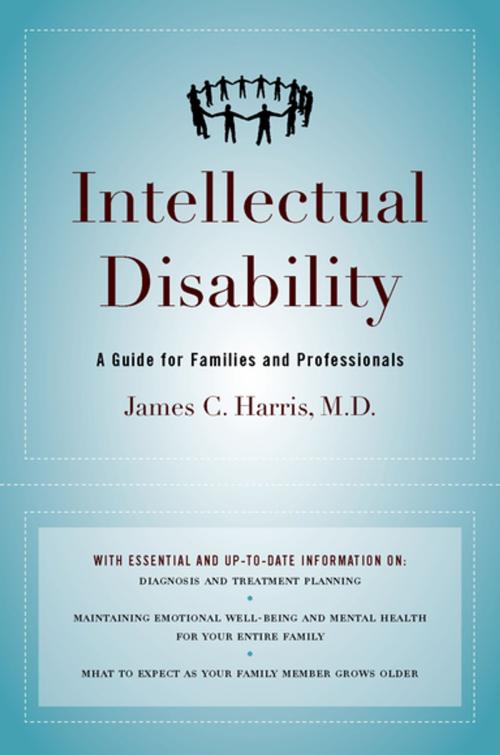Intellectual Disability
A Guide for Families and Professionals
Nonfiction, Health & Well Being, Medical, Patient Care, Caregiving, Ailments & Diseases, Mental Health, Psychology| Author: | James C. Harris, M.D. | ISBN: | 9780199779666 |
| Publisher: | Oxford University Press | Publication: | June 24, 2010 |
| Imprint: | Oxford University Press | Language: | English |
| Author: | James C. Harris, M.D. |
| ISBN: | 9780199779666 |
| Publisher: | Oxford University Press |
| Publication: | June 24, 2010 |
| Imprint: | Oxford University Press |
| Language: | English |
Approximately 2.5 million people in the United States--one percent of the population--have an intellectual disability (previously referred to as mental retardation). These conditions range from genetic disorders such as Down syndrome to disabilities caused by infectious diseases and brain injury. Intellectual Disability: A Guide for Families and Professionals, by one of the country's foremost authorities on intellectual disability, is a comprehensive resource that will be of importance to anyone with a personal connection to a child or adult with a neurodevelopmental disorder. Emphasizing the humanity of persons with intellectual and related developmental disabilities, psychiatrist and pediatrician James Harris provides essential information on assessment and diagnosis of intellectual disability, treatments for specific disorders, and ways to take advantage of the wide array of services available today. The focus throughout is on the development of the person, the positive supports necessary for self-determination, and, to the extent possible, independent decision making. Harris also surveys historical attitudes toward intellectual disability, the medical community's current understanding of its causes and frequency, and the associated physical, behavioral, and psychiatric conditions (such as seizure disorder, depression, and autism) that often accompany particular types of intellectual disability. The book addresses legal, medical, mental health, and research-related issues as well as matters of spirituality, highlighting the ways in which individuals with intellectual disability can meaningfully participate in the spiritual lives of their families and their communities. Each chapter ends with a series of key points to remember, and the book concludes with a list of additional resources of further interest. Intellectual Disability is a must-read for parents and families of those with neurodevelopmental disorders, providing guidance and essential information to help their family members effectively, and to make a significant, positive difference in their lives now and in the future.
Approximately 2.5 million people in the United States--one percent of the population--have an intellectual disability (previously referred to as mental retardation). These conditions range from genetic disorders such as Down syndrome to disabilities caused by infectious diseases and brain injury. Intellectual Disability: A Guide for Families and Professionals, by one of the country's foremost authorities on intellectual disability, is a comprehensive resource that will be of importance to anyone with a personal connection to a child or adult with a neurodevelopmental disorder. Emphasizing the humanity of persons with intellectual and related developmental disabilities, psychiatrist and pediatrician James Harris provides essential information on assessment and diagnosis of intellectual disability, treatments for specific disorders, and ways to take advantage of the wide array of services available today. The focus throughout is on the development of the person, the positive supports necessary for self-determination, and, to the extent possible, independent decision making. Harris also surveys historical attitudes toward intellectual disability, the medical community's current understanding of its causes and frequency, and the associated physical, behavioral, and psychiatric conditions (such as seizure disorder, depression, and autism) that often accompany particular types of intellectual disability. The book addresses legal, medical, mental health, and research-related issues as well as matters of spirituality, highlighting the ways in which individuals with intellectual disability can meaningfully participate in the spiritual lives of their families and their communities. Each chapter ends with a series of key points to remember, and the book concludes with a list of additional resources of further interest. Intellectual Disability is a must-read for parents and families of those with neurodevelopmental disorders, providing guidance and essential information to help their family members effectively, and to make a significant, positive difference in their lives now and in the future.















